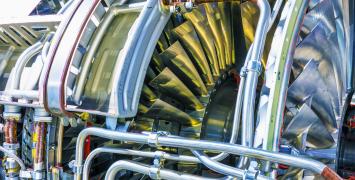Buckle up, turbulence ahead
What if a formation of wind turbines could learn to maximise airflows generated from the movement of other machines to improve their efficiency? What if planes could learn to fly to avoid turbulence? ERC grantee Philippe Chatelain uses artificial intelligence and solutions inspired by nature to answer these questions.

If you suffer from pteromerhanophobia - the fear of flying-, turbulence is surely not amongst the most pleasant moments of a flight. Although scary, it is mostly harmless. It happens because of sudden change in airflow, for example, when your plane gets caught in the wake of a larger aircraft.
Physics dictates that an object moving through a medium leaves a wake behind, like a trail or a signature of itself, similar to those left by ducks moving on water. The wake can affect other objects downstream. This is at the core of fundamental problems in fluid mechanics and translates into some crucial issues for society, in particular when it comes to efficiency of transport and clean energy production.
Philippe Chatelain works on artificial intelligence and bio-inspired solutions to understand the control of flow devices subjected to wake effects, like aircraft and wind farms. He proposes to apply the principle of self-organising systems – a class of systems able to change their internal structure and function according to external circumstances – to aircraft flying in formation as well as wind turbines.
Prof. Chatelain suggests applying learning theory to a group of wind turbines or aeroplanes operating as a collective to improve their efficiency. The results of his research project will copy flocking and schooling behaviours in animals to solve a broad range of flow problems. His research could greatly benefit aeronautics and wind energy production, alleviating turbulence effects and achieving higher efficiency.
Biography
Philippe Chatelain is Assistant Professor at the University of Louvain (UCLouvain), Belgium. He holds a PhD in Aeronautics from California Institute of Technology, where he studied vortex ring reconnections and developed novel techniques for the treatment of deforming boundaries in Vortex Methods, achieving the first simulations of flapping and swimming motions in vortex methods. He co-founded in 2013 Wake Prediction Technologies to deploy state-of-the-art simulation tools more efficiently into services.





